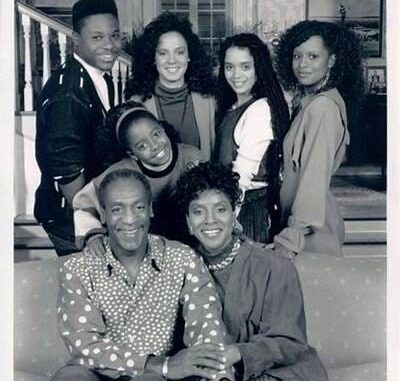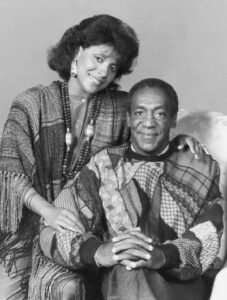
It’s a really tough question, and one that a lot of people grapple with when it comes to The Cosby Show. Before the scandal surrounding Bill Cosby’s personal life came to light, the show was considered a beloved classic, a cultural touchstone that helped shape the landscape of television and the representation of African American families. For many viewers, it was a show that resonated with them on a deep level. It portrayed a loving family dynamic that felt real and aspirational at the same time. The Huxtables were a model of success, humor, warmth, and education. Cliff Huxtable, played by Cosby, was the kind of father that many viewers looked up to—a charismatic, wise, and deeply caring dad who could handle anything with a smile.
For people who grew up watching The Cosby Show, the memories of family time spent in front of the TV, the laughter, and the lessons about family and responsibility are often tied to a sense of nostalgia. It was, for many, a formative show during their childhood or adolescence. And that, in itself, creates a complex emotional attachment.
However, as you pointed out, everything has been complicated by Bill Cosby’s criminal actions. For many people, knowing the details of Cosby’s past behavior—his conviction for sexual assault and the numerous allegations that have surfaced over the years—makes it incredibly difficult to revisit the show in the same way. The man who created Cliff Huxtable and brought so much joy to millions of people is now the person behind one of the most shocking and damaging scandals in Hollywood history. For some, it feels like a betrayal, especially when they realize that Cosby’s public persona was so carefully crafted to hide his real-life actions.

This leaves viewers who once held the show in high regard in a kind of moral dilemma. Do they continue to appreciate the show for its contributions to television and culture, or does Bill Cosby’s personal history taint everything? Some people can compartmentalize the two—enjoying the show for what it was while acknowledging the harm Cosby caused. Others can’t separate the art from the artist, feeling that Cosby’s actions have irrevocably altered their perception of The Cosby Show and his role within it.
One perspective is that the show itself still stands as an important cultural artifact. It represented an era where a Black family could be portrayed as educated, wealthy, and loving, without the stereotypes that were so often attached to Black families in mainstream media. It gave many African American viewers a sense of pride and empowerment, seeing themselves reflected in such a positive light. The Cosby Show helped normalize the idea that Black people could be doctors, lawyers, and professionals. For many, this aspect of the show still holds value, even if they can’t fully reconcile it with the actions of Cosby the man.
On the other hand, there’s the argument that the knowledge of Cosby’s crimes irreversibly damages the emotional connection viewers had with the show. For those who admire the Huxtables as a family unit, it’s hard not to feel conflicted when you know the man behind the character was hiding such a dark side.
It’s not just about The Cosby Show either—this dilemma extends to the broader question of how we engage with the work of problematic artists. Can we still appreciate the work, or should we reject it entirely? There are no easy answers, and everyone’s response is deeply personal. Some people have chosen to no longer watch The Cosby Show, while others continue to view it through a lens that acknowledges both its cultural significance and the painful reality of Cosby’s actions.
For me, the legacy of The Cosby Show is a paradox. The show itself, in the context of television history, was groundbreaking and important, and it was loved by many for the values it promoted. But it’s difficult to escape the shadow of Cosby’s real-life actions, which changes how the show is perceived and appreciated. The memories of watching the show, the laughter, and the family lessons, are still there, but they’ve become tinged with discomfort. The contrast between the character of Cliff Huxtable and the man behind it is stark—and that’s hard to ignore.
How do you feel about the show now? Do you think it’s possible to still appreciate The Cosby Show in light of what we know about Bill Cosby, or does it change the way you look at it entirely?